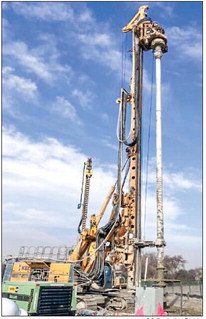• Double check dates and ….
• Double check dates and names for accuracy. This is the contributor’s responsibility.
Corrections
• Email articles after everyone in your group has proofread it.
•If making a correction after sending the article, bold or change the font color for the change in the article.
• Always double check that the day of the week and date match.
Editing
All content submitted to the LW Weekly is edited for consistency and to align with AP Style and GRF guidelines.
Edited articles cannot be emailed back to correspondents for review because of time and the volume of content received. The style guidelines below can help writers to submit articles that are less likely to need extensive editing.
Photos
To have a photo taken, contact your editor at the LW Weekly (see contact information in the staff box on page 4). To set up an appointment, you can call or email the request. Give plenty of lead time as schedules fill up.
Residents may submit photos, but they will be used at the editor’s discretion. Photos must be submitted by email in a jpeg format (preferred), on a flash drive or in person at the LW Weekly office. The Weekly cannot use photos that have been reproduced in other newspapers or magazines nor can it use copyrighted photos without permission.
To submit a photo, be sure it is clear and in focus and that faces are large enough to be recognized. For group photos, try to avoid crowding too many people in one shot. Arrange groups in rows (some seated, some standing) to make it more interesting.
When sending a photo shot with a cell phone, be sure to send the “original” size so it is large enough to be published in the paper. Photos must be at least 300 dpi A maximum of three photos can be submitted per article; there are no guarantees that all photos will be published. Photos with five or fewer people must include the full names of the people photographed. For larger group shots, a generic caption is acceptable. List the names of people from left to right, top row to bottom.
GENERAL EDITORIAL GUIDELINES
• Do not use personal pronouns like “I,” “we,” “you,” “our” or “us” in articles. For example: “The club will hold ...” not “We will hold ...”
• The first paragraph should begin with the most important facts: who, what, when, where and how. Paragraphs should be short, two to four sentences.
• The LW Weekly follows the Associated Press Stylebook guidelines and will edit accordingly for space. As a general rule, shorter is better. Be clear and concise.
• Do not give a full introduction of speakers. Supply just enough information to draw people to the meeting. This could include information about the speaker’s background and qualifications (one to two paragraphs).
• Every article should have a contact person and phone number or email address at the bottom. Phone numbers must include area codes, including (562).
Fact Check
It is the responsibility of the correspondent to fact check dates, names, phone numbers and email addresses. Be sure names are spelled correctly in the captions. These are the most common mistakes editors see.
AP Style Guide
Here are some rules per AP Stylebook and some that are specific to the LW Weekly.
Day, time and place:
Make sure the day, date, time and place are included in the first paragraph of the story.
Dates:
The name of a month is written out unless it includes a date. When including a date, the following are the months with abbreviations: Jan., Feb., Aug., Sept., Oct., Nov. and Dec.
Do not include the year in any date unless it was last year or a date next year.
Numbers:
In general (except in dates, times, addresses), spell out numbers one to nine and use figures for 10 and above. The rule is the same for first to ninth, 10th and above in figures. This applies even in winners. However, scores such as in tennis may be in numerals (6-1, 6-2, etc.).
Phone Numbers:
Starting October 2021, all phone numbers dialed from Leisure World, Seal Beach, will will require 10-digits. Landlines will require the 1- before the number. Therefore, all phone numbers should be written as (562) 555-5555.
Clubhouse:
Clubhouse is one word. Only EDIT
from page 19
capitalize it when referring to specific clubhouse or room in a clubhouse. Don’t use “the” before the name of a clubhouse.
• Capitalize titles such as president, reverend and chairman only when used before a person’s name. If used as an identifying term or in a general way, do not capitalize it.
For example:
• President John Doe is going to...
• John Doe, president, is going to...
COMMON AREAS OF STYLE MISUSE
The following are areas in which editing is most often needed:
• Don’t use please; thank you can be used only with bylined stories and must be written in third-person (i.e., “The club thanks its volunteers,” not “We thank the volunteers”).
• Capitalize only proper pronouns when listing menu items (i.e. house salad, Caesar salad, mozzarella cheese, Parmesan cheese, etc.)
• “underway” is one word in all instances.
• “cutoff” as a noun and adjective is one word; as a verb, two words.
• When referring to a decade, the 1930s, 1990s, etc., is the correct usage (without the apostrophe). For example: “A group of women in their 90s” and “He was a mechanic back in the ’20s.”
• Periods and commas are inside quotation marks; semicolons are outside.
• “brown-bag lunch” has a hyphen.
• “car pool” is two words as a noun and an adjective; one word as a verb.
• Use “its” when referring to a group. For example: “The Community Club will hold its meeting...”
• Seasons (winter, summer, etc.) are not capitalized.
• Academic degrees should appear as: bachelor’s degree, a master’s degree, doctoral program, a doctorate degree (preferred form for Ph.D.).
• Most acronyms do not have periods: example, CSULB.
• In the LW Weekly, Mutual is capitalized.
• Board is only capitalized when referring to the GRF Board.
• “Sign-ups” (the noun, not the verb) and “long-term” has a hyphen; “nonprofit” and “longtime” do not.
• Use hyphens and parentheses for phone numbers, i.e. (562) 555-5555.
• Don’t abbreviate the days of the weeks. It’s Sunday, not Sun.
• Overused and trite phrases will be edited out of stories. For example, “mark your calendar” and “and a good time was had by all.”
• Use women, not ladies.
• Avoid overusing exclamation points. Editors will delete these.
• Movie, play, song and book titles should be in quotes.
WRITING TIPS
• Limit use of adjectives and adverbs: In general, they should not be used except when there’s a bylined article. Never use “very.”
• Use the fewest words possible (i.e., not “will be meeting” but “will meet”).
• Don’t describe the weather for a past event, unless it was significant. For example, “The heavy rain resulted in low attendance.”
• Remember to write for all Leisure World residents, not just members of the club or organization.
• Remove redundancy in phrases, words and whole sentences, e.g., “the fact that” or “in order to.”
• Keep it simple: Long sentences often contain more than one idea. Cut longer sentences in two.
• All the sentences in a paragraph should relate to the point of that paragraph.
• Keep verb tense consistent all the way through, don’t switch from past to present.
• Remove jargon and references that others outside the club might not understand, and avoid exclamatory phrases (for example, “We’ll see you there!”).
• Try to use the active rather than the passive voice. Use “the club accomplished its goals in 2020,” instead of “the goals were accomplished by the club in 2020.”



